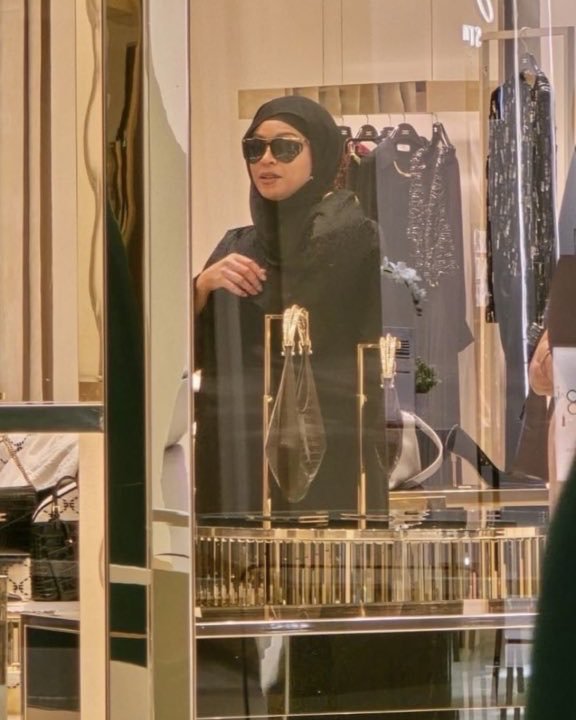Key Highlights
- Beyoncé sparked debate by wearing a hijab during her trip to Qatar.
- Critics accused the pop star of “performative activism” for visiting a country with human rights concerns.
- Fans praised Beyoncé’s respect for local culture, while others questioned her motives.
- The incident follows similar controversies involving other celebrities and Qatar.
Beyoncé’s Controversial Choice: A Cloak of Respect or Performative Activism?
Beyoncé’s recent decision to wear a hijab during her trip to Qatar has ignited heated discussions among fans. The 44-year-old pop icon, who recently wrapped up her Cowboy Carter world tour, was spotted shopping in Doha with her husband Jay-Z, donning a black abaya and matching sunglasses. While some admirers praised the artist for showing respect towards local culture and traditions, others questioned whether this act of wearing a hijab was merely performative activism.
Respect or Performative Activism?
Beyoncé’s choice to wear traditional attire in Qatar has been met with mixed reactions. Fans took to social media platforms like X (formerly Twitter) to express their admiration for the pop star’s gesture, stating that it demonstrated her respect and humility towards local customs. A user named Ayyonce wrote: “Beyoncé wearing abaya in Qatar is my new personality for the rest if the year … she is so humble and respectful to the culture and our religion oh my god.”
However, not all reactions were positive.
Critics pointed out that Beyoncé’s visit to Qatar coincided with concerns about the country’s human rights record, particularly its treatment of LGBTQ+ individuals and migrant workers. Selena Maris expressed her skepticism on X: “Beyoncé shopping in Qatar the same place slammed for human rights abuses? Guess ‘activism’ takes a break when luxury brands are involved. Celebs preach justice until the paycheck or photo op says otherwise.”
Historical Context and Similar Controversies
The controversy surrounding Beyoncé’s visit to Qatar is not unique. Other celebrities have faced similar backlash for their associations with the country, which has a history of human rights issues and criticisms regarding labor practices. David Beckham, for instance, was criticized when he accepted an ambassadorship role for the 2022 FIFA World Cup in Qatar.
Beyoncé’s representative did not immediately respond to requests for comment from Metro.co.uk. Nevertheless, these incidents highlight a broader issue within the entertainment industry: the tension between cultural respect and ethical responsibility.
Expert Perspectives on Cultural Sensitivity
Experts argue that cultural sensitivity requires more than just wearing traditional attire; it involves understanding and supporting the full range of issues faced by the local population. Dr. Rachel Kim, a cultural anthropologist at Harvard University, commented: “While wearing a hijab can be seen as an act of respect for some, it should not overshadow larger concerns such as human rights abuses and labor exploitation.”
Furthermore, experts suggest that celebrities could use their influence to advocate for change rather than simply participating in luxury events.
Dr. Kim added: “Celebrities have a platform to bring attention to these issues. They can choose to support organizations working towards better conditions for workers or LGBTQ+ rights instead of just visiting and promoting the country’s image.”
Conclusion
A Sensitive Issue Demands Balanced Action
The debate around Beyoncé’s decision to wear a hijab in Qatar underscores the complex nature of cultural respect in today’s globalized world. While her actions can be seen as an act of humility and cultural appreciation, they also raise questions about the authenticity of such gestures in light of broader human rights concerns.
As the conversation continues, it is essential for celebrities to approach cross-cultural engagements with a nuanced understanding of the issues at hand and to consider how their actions may influence public perceptions and real-world change.

